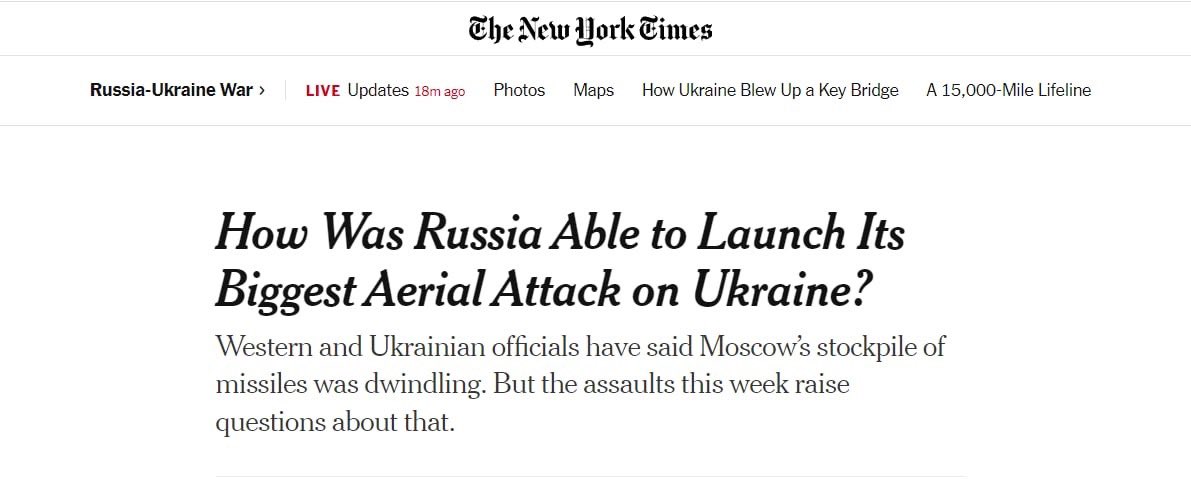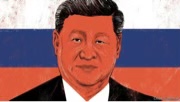|
What is the most powerful flying bug? This poll is closed. |
|||
|---|---|---|---|
| 🦋 |
|
15 | 3.71% |
| 🦇 |
|
115 | 28.47% |
| 🪰 |
|
12 | 2.97% |
| 🐦 |
|
67 | 16.58% |
| dragonfly |
|
94 | 23.27% |
| 🦟 |
|
14 | 3.47% |
| 🐝 |
|
87 | 21.53% |
| Total: | 404 votes | ||
|
Beyond power projection, there was also the questions of supply, regular forces, and the general geopolitical situation; my read of the consensus in Japanese is that while the irredentists have gotten louder about it being insufficient resolve in the face of strategic bombing, the mainstream position remains the well-supported assumption that, while the atomic bombings were harrowing, they were a sideshow to the loss of coal and steel from Manchuria, the loss through commerce raiding of food from Taiwan and Manchuria as well as damage to home infrastructure through conventional bombing, the loss of their primary trained forces in the field, and the loss of any potential peace terms that involved Soviet support as a buffer state, as well as the potential ease of landings in the unprepared north--a Sakhalin-to-Hokkaido sealift could be accomplished in visual range on a clear day, and the only forces in the area to respond to the 100,000-strong Soviet 16th Army were two divisions currently dug in on the Pacific coast, around 200km away. In particular, the official reaction to Potsdam (before Hiroshima and Nagasaki but well after Tokyo was bombed flat) was delayed pending consultation with the ambassador to Moscow, and while there was still a plurality of the war council in favor of continuing the war as of their meeting the morning of August 9th after Hiroshima and the Soviet declaration of war/before Nagasaki and the loss of the Kwantung Army, Hirohito's chief advisor recorded that he was commanded to "quickly control the [domestic, in the context of a debated proposal for martial law] situation" because of the Soviet entry; further, in his speech to the armed forces on the 17th, Hirohito explicitly stated "Now that the Soviet Union has entered the war against us, to continue the war under the present internal and external conditions would be only to increase needlessly the ravages of war finally to the point of endangering the very foundation of the Empire's existence."
|
|
|
|

|
| # ? May 27, 2024 06:19 |
|
Al-Saqr posted:AMERICA STANDS FOR DEMOCRACY, YOU GOTTA LICK UKRAINES rear end PEOPLE JUST THIS ONCE THIS TIME FOR REAL AMERICA FIGHTS FOR THE GOOD GUYS AND DEMOCRATIC VALUES My torture victims protection act has a lot of questions the head of state immunity clauses answer
|
|
|
|
Mandoric posted:Beyond power projection, there was also the questions of supply, regular forces, and the general geopolitical situation; my read of the consensus in Japanese is that while the irredentists have gotten louder about it being insufficient resolve in the face of strategic bombing, the mainstream position remains the well-supported assumption that, while the atomic bombings were harrowing, they were a sideshow to the loss of coal and steel from Manchuria, the loss through commerce raiding of food from Taiwan and Manchuria as well as damage to home infrastructure through conventional bombing, the loss of their primary trained forces in the field, and the loss of any potential peace terms that involved Soviet support as a buffer state, as well as the potential ease of landings in the unprepared north--a Sakhalin-to-Hokkaido sealift could be accomplished in visual range on a clear day, and the only forces in the area to respond to the 100,000-strong Soviet 16th Army were two divisions currently dug in on the Pacific coast, around 200km away. the one reason i dont fully discount the atomic bombings from the surrender decision is that the best units of the kwantung army had been sent to the mainland prior to the soviet invasion to face the upcoming american one. losing manchuria and the soviets as a diplomatic out was still a gigantic blow but also one the japanese seem to have judged as some degree of an acceptable risk when they stripped down the kwantung
|
|
|
|
Lostconfused posted:All war is crime This relies on the assumption that rules one particular party invents out of thin air actually matter to another party who may care little to nothing for them. Like trying to get people playing Monopoly at a friend's place to start using your home rules variations. Trying to issue a written citation to the mad max barbarian trying to take your scalp with a circular saw might leave them briefly confused at least.
|
|
|
|
I'd you need any proof that bombing doesn't win wars just look at how many wars the United States has lost using it as their primary strategy.
|
|
|
|
mlmp08 posted:Probably not, but that's where the ICRC acknowledges that civilians may end up targeted or in a targeted area without it being a war crime. They're only crimes if the other side does them and your side wins the war, thus having an ability to enforce. No ability to enforce, no rules.
|
|
|
|
Dreylad posted:Maybe the US is planning on looting the Ukrainian treasury on the way out. The number of times the Ukraine treasury has been looted over the past decade I'd be surprised if there was anything in there to begin with.
|
|
|
|
I was under the impression that Japan generally thought it was better to surrender to the Americans than the soon-to-invade Soviets, and that blaming the a-bombs was more of a post-hoc measure of saving face for a bunch of proud generals - who, by that point, were viewing firebombed cities as the cost of business. https://foreignpolicy.com/2013/05/30/the-bomb-didnt-beat-japan-stalin-did/ quote:Historically, the use of the Bomb may seem like the most important discrete event of the war. From the contemporary Japanese perspective, however, it might not have been so easy to distinguish the Bomb from other events. It is, after all, difficult to distinguish a single drop of rain in the midst of a hurricane. dieselfruit has issued a correction as of 23:43 on Nov 18, 2022 |
|
|
|
https://twitter.com/DenisRogatyuk/status/1593291966917144576
|
|
|
|
dieselfruit posted:I was under the impression that Japan generally thought it was better to surrender to the Americans than the soon-to-invade Soviets, and that blaming the a-bombs was more of a post-hoc measure of saving face for a bunch of proud generals - who, by that point, were viewing firebombed cities as the cost of business. basically we'll never know for sure because no one wrote a primary document prior to the arrival of the occupation force where they explain what they were thinking at the final war conference (or if hirohito did the imperial family association has buried them deeply)
|
|
|
|
Ah, the ukranians are decolonizing their script.
|
|
|
|
Myt understanding is that there is good evidence that the Japanese leaders (correctly) deduced that they had a grace period from further atomic bombings, as their assessment was that the Americans did not have the capacity to produce more than the 2 bombs that had already been dropped and they determined that future bombs would most likely be at least 6 to 9 months off. The Japanese had already been trying to surrender to the Americans for months prior to the bombings, counting on the good will of the Soviets (who they had mostly been relatively "friendly" with) to aid in negotiating something short of unconditional surrender - a surrender that would preserve the Japanese institutions (especially the emperor and his family) and some portion of their territories. It seems pretty obvious that when the Soviets turned on the Japanese and invaded Manchuria the situation became hopeless to the Japanese while at the same time inducing the Americans to convey some assurances that the Japanese would be treated generously if they did surrender. The Americans themselves were looking to limit Soviet expansion in the area and certainly didn't want a scenario where they broke into mainland Japan through the back door.
|
|
|
|
V. Illych L. posted:the impression that i get is that this electricity attack strategy is basically an economic war strategy. industry requires electricity and modern business requires you to have reliable internet access (and so electricity), and ukraine has not transitioned into anything like a command economy. this means that hitting their export industries is effectively hitting their ability to raise foreign currency, which is again hitting their ability to keep from defaulting on their debts and avoiding a full-blown financial crisis. Yeah, I certainly can see how the Russians would see it that way. They clearly have austerity brain, they went into this war with their dragon's hoard stashed in foreign banks instead of paying a larger and better maintained army, so that's not indicative of an instinctive grasp of what rules are fake. And anyway, the EU always struggles with big funding pledges and the IMF would certainly run into some institutional stress. Looks close enough to a plan to latch onto. Might even work.
|
|
|
|
Frosted Flake posted:Germany and Japan were unable to produce essential equipment such as aircraft engines, production supply chains of most military goods were severely disrupted for lack of components and subassemblies, bombing rail lines, roundhouses and yards eventually caused chaos in timetables and eventually the rail nets collapsed, ships were not able to put to sea for lack of fuel, tens of thousands of personnel and huge quantities of resources were diverted to firefighting, air defence and other home front duties. Bombing can absolutely destroy a nation's ability to produce war materiel or much of anything, and can make any kind of significant offensive military action impossible or hopeless. That was true in WWII, and it's honestly a lot truer now with weapons that can even occasionally be relied upon hit specific point targets. But Russia didn't start a war with Ukraine to destroy their ability to conduct offensives, they went to war to achieve some degree of political control over the country, to produce a government more friendly towards Russia, and to leverage pro-Russian Ukrainians against nationalists or otherwise anti-Russians to form a politically dominant coalition. Strategic bombing can not and will not achieve that, and will almost certainly work opposite to those goals. Also, at this point, Russia can't achieve any of it's political objectives without some kind occupation of at least parts of Ukraine. Strategic bombing has a pretty poo poo track record at enabling a successful military occupation of an uncooperative population, in the absence of force ratios that would enable a successful occupation regardless. You can't make up for a deficient war plan on the ground with strategic bombing. I honestly can't think of a single counterexample. The usefulness of this bombing is that it may (eventually) destroy Ukraine's ability to conduct successful, conventional counter-offensives in areas that are actually being defended. And in doing so, it could burst the hype bubble that is presently discouraging Ukraine from coming to the table or receding from a maximalist position. But I don't think it's gonna help Russia take or hold territory, so it doesn't do anything to resolve the main problem: Russia cannot achieve any of it's political objectives, or even come away from this saving face domestically, if all it holds is what it's holding now
|
|
|
|
torture, mass purges, summary executing POWs, nazi units everywhere. good guy stuff
|
|
|
|
you laugh but if america was ever invaded by land you'd be glad the KKK was trained in artillery warfare and given a blank check to do whatever they wanted 
|
|
|
|
Marzzle posted:you laugh but if america was ever invaded by land you'd be glad the KKK was trained in artillery warfare I'm pretty sure the Nazis are the rear blocking detachments and the secret police who swoop in to make the viral posts on social media that the NAFO freaks live for. The poor fucks on the front lines (the half of them that are still alive) probably don't have particularly strong political ideology outside of "I hope I last through the week" at this point.
|
|
|
|
Furtwängler was a guy who made music for the Nazis? What is this.
|
|
|
|
This is all so confusing when the Ukrainians have both Furtwänglers and Dirlewangers, like they were very different kinds of people, but then it's still on the collaborator flag. Has the Joseph Goebbels Political Research Center issued a report on this?
|
|
|
|
Fat-Lip-Sum-41.mp3 posted:Furtwängler was a guy who made music for the Nazis? What is this. "oh the russians have a PMC named after a composer whose music was liked by the nazis? well we will have our own group of sociopathic militias but ours will be named after someone who made music for the nazis, talk about owned lmao slava ukraini"
|
|
|
|
Fat-Lip-Sum-41.mp3 posted:Furtwängler was a guy who made music for the Nazis? What is this. Turd Ferguson and Fart Wangler
|
|
|
|
I can think of plenty of examples where strategic bombing did help weaken a countries’ ability to resist ground offensive, it has always lead to at least some successful occupations. It honestly depends if it comes with a ground offensive at some point. In the case of Japan, the Soviet Union invading was the final straw but once it occurred there was almost no resistance. In Korea, it didn’t break the will of the population but certainly weakened the ability of North Korea to withstand offensives. In Vietnam, strategic bombing also didn’t break the will of the population but there was clearly how far in the US was willing to go and eventually it’s will to continue got dragged down. In Iraq 1/2 it also showed effectiveness. The question becomes like I said, how far the Russians are willing to go with it and then what their follow up will be. Ardennes has issued a correction as of 00:42 on Nov 19, 2022 |
|
|
|
Raskolnikov38 posted:the one reason i dont fully discount the atomic bombings from the surrender decision is that the best units of the kwantung army had been sent to the mainland prior to the soviet invasion to face the upcoming american one. losing manchuria and the soviets as a diplomatic out was still a gigantic blow but also one the japanese seem to have judged as some degree of an acceptable risk when they stripped down the kwantung My take is that this is also fairly in-line with what you'd do if your internal decisionmaking was that you could fight on even through the A-bomb as a Soviet protectorate but that a two-front war was doomed. To be fair, the food situation in particular was also becoming extremely dire, and in a world where that wasn't taken off the table immediately but ended tied up in the same negotiations re: the exact status of imperial power and unilateral arms reductions under pressure vs. enforced disarmament that were floated with the US I do think we would have seen capitulation via the combination of of shipping interdiction and strategic bombing sometime within the next year, though that was a prospect for a cold winter of '45 or for the crop of '46 to fail rather than immediate collapse. But, to get back to the point in this thread, I don't at all see the same conditions applying to Ukraine, where farming continues at a pace still allowing grain exports and where RF attempts to interdict imports by land are at best extremely desultory. (Ranging further into the speculative, I can't give exact cites for the Japanese upper crust preferring subordination to the US over to the USSR, but as results-based analysis it's a no-brainer--the actual fascist bloc of mittelstand failsons and army field officers didn't even get that much of a purge, never mind the navy-aligned/big MIC liberal-but-not-socially bloc whose heritage continues in the LDP as well as every Outlander or Outback sold.)
|
|
|
|
Ukraine is a bread basket country and I do have a hard time seeing the food supply system itself collapse. However, I do think the aim of Russia’s campaign is more deindustrialization, not to level the country or starve its population but reduce its ability to fight back.
|
|
|
|
dieselfruit posted:I was under the impression that Japan generally thought it was better to surrender to the Americans than the soon-to-invade Soviets "the countries we beat wanted to surrender to us and not the other guys because we were actually the good guys!" - most history lessons from around the world
|
|
|
strategic bombing clearly does work to damage your opponent's ability to resist, particularly if you can actually be "strategic" in your target choices instead of just wiping out cities because you can't reliably aim the bombs at a smaller scale than "entire city". that's not really controversial at all. the debate is always (including earlier in the conversation in this thread) whether the terror aspect of it does anything to induce civilians to push for surrender, and therefore whether bombing (or shelling, etc.) aimed at civilian infrastructure and population does anything other than add lines on your war crimes rap sheetBULBASAUR posted:"the countries we beat wanted to surrender to us and not the other guys because we were actually the good guys!" - most history lessons from around the world japanese leadership was rabidly anti-communist. like, more anti-communist than hitler
|
|
|
|
|
Jazerus posted:the debate is always (including earlier in the conversation in this thread) whether the terror aspect of it does anything to induce civilians to push for surrender, and therefore whether bombing (or shelling, etc.) aimed at civilian infrastructure and population does anything other than add lines on your war crimes rap sheet I don't think there's much debate there, terrorizing civilians as an aim doesn't do anything to help achieve victory. In particular because the civilians have no power to affect policy change even if the terrorism "worked." either way if the impact to civilians is disproportionate compared to military aims it's a warcrime, but we've already established all modern wars since the current rules were written break these rules in nearly identical ways. No one is really interested in fighting non-criminal wars. probably the only debatable topic is the effectiveness of the economic impact of smashing infrastructure, and essentially grinding the country's economy to a standstill as a result.
|
|
|
|
It's silly to argue against the idea that Russian strategic bombing will crack Ukraine's national will to resist, because no one has thought strategic bombing can do that since like 1944. Ukraine is fighting a total war, directing the maximum amount of resources its state and economy is able to towards the army. Turning the power off necessarily weakens the economy and the capacity of the state, which in turn necessarily weakens the army which those two generate and regenerate. It's not a question of morale.
|
|
|
|
Well it's not necessarily the terror aspect I'd say that would push people to surrender, so much as them just not being an army. Horrible poo poo happens in America and other nations every day but the people who it happens to and their loved ones grit their teeth because there's no actual point in getting gunned down by a cop when it won't even seem to make a difference. Russia has to defeat the Ukrainian military to get the people to surrender first. A bunch of people pissed off their son got shot don't do poo poo unless organized into a concerted fighting group(however ragtag they would be). At the moment it's not anywhere near as clear which way things are going as compared to all referenced conflicts.
|
|
|
|
I would say there is also technological split between pre Persian Gulf and post styles of bombing, you could argue that terror was more of a motivator in earlier campaigns simply because the technology hadn’t matured to the point of focusing on precision. Particularly during the First World War they couldn’t even get close to the right neighborhood, it was just about trying to make the war “real” for the population. In the case of Ukraine it does seem a slowly ramping Iraq style campaign, more than something like the Second World War, even if there is a terror component in all campaigns. I would say morale would be more of in the trenches themselves. We already know morale was rather low during the summer, but has almost certainly improved in the last months. Also, there are secondary effects in morale as supply issues arise etc. Ukrainian soldiers wouldn’t be terrorized into surrendering but a lot of the question is if they feel they are in a winning war or not. Ardennes has issued a correction as of 01:41 on Nov 19, 2022 |
|
|
|
 
|
|
|
|
oh gently caress *off*
|
|
|
|
Ardennes posted:I can think of plenty of examples where strategic bombing did help weaken a countries’ ability to resist ground offensive, it has always lead to at least some successful occupations. Saying the outcome would have been different in Vietnam had the Americans "gone further" is a counterfactual. It's also not really supported by anything...even as air campaigns were being heavily ramped up, the situation on the ground only got worse. Iraq 1 involved a massive ground offensive on many fronts with doctrinally normal force ratios and organization, extensively committed logistics, and ultimately did not involve a significant occupation or taking of territory. The occupation in Iraq 2 was an abject failure and in any case did not involve widescale strategic bombing for the majority of the war. Anyway, there is no doubt that bombing can weaken a nation's ability to conduct war, destroy its industrial potential outright, or support an invasion. The problem is: then what? Occupations by an under-manned ground force, against an uncooperative population, have almost always (always?) ended in failure--irrespective of any support by strategic bombing. Unless Russia is able to commit the necessary ground troops to occupy more territory, I don't think any amount of bombing will change that.
|
|
|
|
it keeps happening lol
|
|
|
|
i mean are those little helicopter blades or what
|
|
|
|
In other news:Slavyangrad posted:@Zastavyii writes about military equipment left on the right bank of the Dnepr river: Slavyangrad posted:(continued from previous post) Ukrainian trophies in Kherson were small and tended to be damaged, 25-47 pieces of equipment at most. LostArmour posted:
Lostarmour compiled their count of lancet strikes and their assessment of what happened. In short, they're being published more frequently and do more damage to soft vehicles than tanks. ASB stated that Zala increased production starting in July but I haven't been able to find mentions of it. Though it is another point in increased war material production. https://archive.ph/zLW1k#selection-5003.0-5008.1 quote:According to SPIEGEL information, planning errors in the ordering of spare parts are increasingly jeopardizing the operational readiness of German self-propelled howitzers in Ukraine. Following the delivery of a total of 14 self-propelled howitzers 2000, the German Ministry of Defense had failed to order extensive spare parts packages in time to regularly maintain the weapon systems and thus keep them operational. German wunderwaffen still a bit broke and unreliable.
|
|
|
|
Morbus posted:The problem is: then what? Occupations by an under-manned ground force, against an uncooperative population, have almost always (always?) ended in failure--irrespective of any support by strategic bombing. They haven’t, but uh I certainly wouldn’t endorse that approach, The Far Reaches of Empire: War in Nova Scotia, 1710-1760 The Far Reaches of Empire chronicles the half century of Anglo-American efforts to establish dominion in Nova Scotia, an important French foothold in the New World. John Grenier examines the conflict of cultures and peoples in the colonial Northeast through the lens of military history as he tells how Britons and Yankees waged a tremendously efficient counterinsurgency that ultimately crushed every remnant of Acadian, Indian, and French resistance in Nova Scotia. The author demonstrates the importance of warfare in the Anglo-French competition for North America, showing especially how Anglo-Americans used brutal but effective measures to wrest control of Nova Scotia from French and Indian enemies who were no less ruthless. He explores the influence of Abenakis, Maliseets, and Mi'kmaq in shaping the region's history, revealing them to be more than the supposed pawns of outsiders; and he describes the machinations of French officials, military officers, and Catholic priests in stirring up resistance. Arguing that the Acadians were not merely helpless victims of ethnic cleansing, Grenier shows that individual actions and larger forces of history influenced the decision to remove them. The Far Reaches of Empire illuminates the primacy of war in establishing British supremacy in northeastern North America.
|
|
|
|
Danann posted:In other news: Some things never change.
|
|
|
|
Look, they can't have been wrong about the missile supplies dwindling, there has to be another explanation for it. North Korea and Iran must be supplying them, or I dunno maybe ISIS is back, shut up!
|
|
|
|

|
| # ? May 27, 2024 06:19 |
|
Majorian posted:Look, they can't have been wrong about the missile supplies dwindling, there has to be another explanation for it. North Korea and Iran must be supplying them, or I dunno maybe ISIS is back, shut up! missiles have achieved sexual reproduction
|
|
|
































